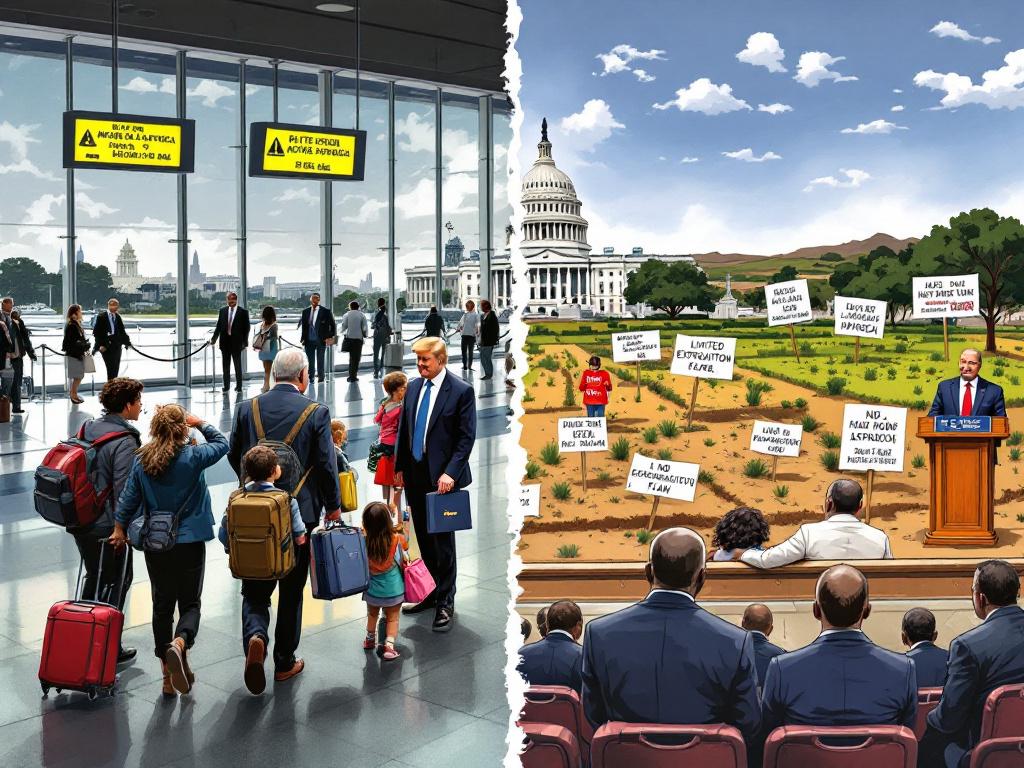
A tense diplomatic scene split between Washington D.C. and Pretoria: in the foreground, airport arrivals with a small group of white South African families carrying suitcases and passports marked “refugee,” while a news ticker highlights reduced global refugee admissions. In the background, the U.S. Capitol and a stern U.S. official holding a stamped fast-track file. Across a visual divide, South Africa’s Union Buildings with President Ramaphosa at a podium defending land reform, a rural farm landscape with surveyed plots and legal documents marked “limited expropriation,” and protest signs rejecting claims of widespread persecution. Media screens echo polarized narratives, while experts’ reports emphasize “
Summary
A growing diplomatic clash has erupted as the Trump administration elevates white South African Afrikaners as persecuted refugees, fast-tracking their entry while curbing broader refugee admissions and cutting aid to South Africa. President Cyril Ramaphosa rejects claims of anti-white persecution and calls recent Afrikaner arrivals “cowards,” defending land reform measures designed to address apartheid-era inequities and noting that uncompensated expropriation is limited and rare. Influenced by right‑wing media narratives and advisers, Trump has framed South Africa’s policies as race-based discrimination and even threatened diplomatic penalties, intensifying tensions amid broader disputes over Israel and diversity policies. Critics argue the policy shift distorts facts, departs from U.S. refugee norms, and weaponizes racial grievance politics, while experts emphasize that white South Africans retain disproportionate land ownership and do not face genocide.
Key Points
- Trump administration prioritized Afrikaner refugees while restricting overall refugee admissions.
- Ramaphosa rebuts persecution claims, defends targeted land reform, and criticizes migrants.
- U.S. actions included aid cuts, ambassador expulsion, and G20 threats, escalating tensions.
- Policy shaped by right-wing media narratives and advisers aligned with white grievance politics.
- Experts say genocide claims are unsubstantiated and uncompensated seizures expected to be rare.